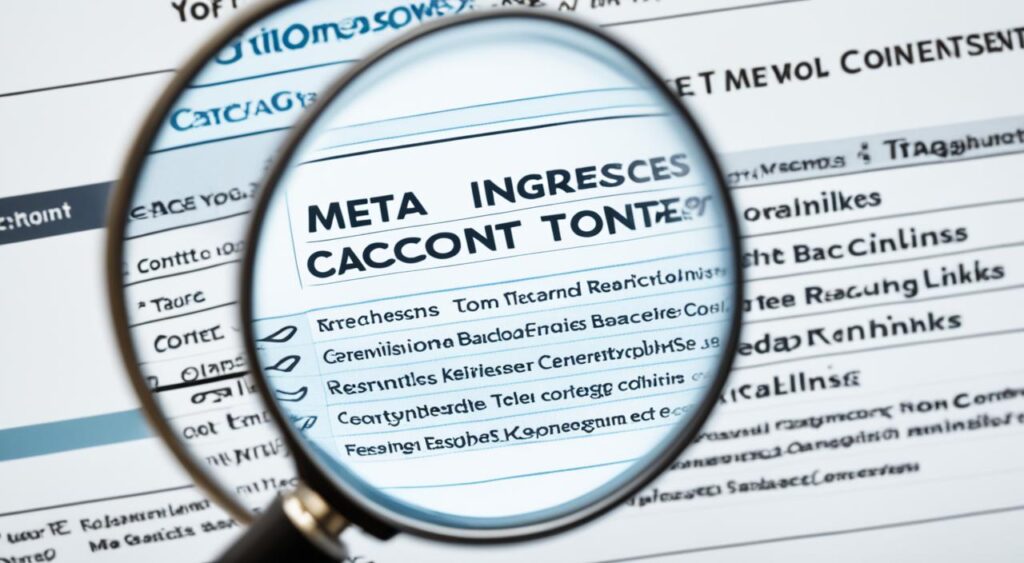In the evolving landscape of digital marketing, there’s one beacon that has continuously shone the way for businesses seeking online prominence: search engine optimization (SEO). Imagine you’ve set out on a vast and tumultuous sea, aiming for the treasure trove of organic traffic. Your map? A well-crafted SEO strategy, intricate and full of nuances, capable of navigating through the ever-shifting currents of algorithm updates and market trends.
As stories of small businesses turning into industry leaders by mastering SEO clutter the digital airwaves, the message becomes clear: Understanding and leveraging the depths of SEO can be the difference between being a drop in the ocean and creating waves that command attention in the vast digital sea.
Key Takeaways
- Recognize the fundamental role of SEO in enhancing website visibility and securing organic traffic.
- Embrace the continuous learning curve of SEO to stay ahead in the digital marketing game.
- Invest time in meticulous keyword optimization to guide relevant traffic to your site.
- Create a content foundation that stands strong in both authority and trust to boost SERP rankings.
- Peel away the layers of an effective SEO strategy to find the sweet spot for your digital presence.
Understanding the Basics of Search Engine Optimization
At the heart of thriving online businesses is a solid grasp of SEO, or Search Engine Optimization. This multifaceted approach is vital for enhancing the visibility of your website in organic search results. It’s more than just a technical necessity; it’s a fundamental aspect of any digital presence, pivotal in steering potential customers to your products and services through the vast expanse of the internet.

What is SEO and Why is it Important?
Simply put, SEO is the practice of increasing both the quality and quantity of website traffic, as well as exposure to your brand, through non-paid (also known as “organic”) search engine results. In a world where the internet plays a lead role in how decisions are made, from choosing a local restaurant to picking a software provider, appearing in the top results for relevant queries can be the difference between a thriving business and an unseen one.
The Evolution of Search Engine Algorithms
As algorithms evolve, so must your SEO strategy. It’s akin to a dance where search engines lead, and websites follow the latest SEO trends and best practices. It is a continuous cycle of performing keyword research, applying on-page optimization, and bolstering off-page optimization efforts to match the intricacies of updated algorithms, thereby ensuring relevance and visibility in the dynamic landscape of search results.
Let’s explore each component:
- Keyword Research: Your SEO journey begins with uncovering the very words and phrases your potential customers are using. It’s a strategic puzzle – what terms will they type into the search bar when seeking your services or products?
- On-Page Optimization: Every webpage must be an alchemist’s blend of well-researched keywords and user-focused content. This is not just about satisfying search engines but providing valuable information that engages readers, keeping them glued to your site, and eager for more.
- Off-Page Optimization: Beyond your site’s confines lies the wild web of connections – backlinks from other websites. These are the nods of approval from the digital community, affirming your site’s worthiness and boosting your reputation in the eyes of search engine behemoths.
To encapsulate the insights on SEO components, consider the following table:
| SEO Component | Function | Impact on Rankings |
|---|---|---|
| Keyword Research | Identifying target terms and phrases. | Directs relevant traffic to your site. |
| On-Page Optimization | Optimizing individual webpages. | Enhances page relevance for search queries. |
| Off-Page Optimization | Building external links and references. | Increases domain authority and trust. |
Embrace the fundamentals of SEO and witness the transformative power of an optimized online presence. Keep abreast of the endless waves of algorithm updates and refine your strategy to navigate the ever-changing seas of the digital world.
Crafting an Effective SEO Strategy
An effective SEO strategy is fundamental to the success of any digital marketing plan, particularly when it comes to increasing your organic traffic. It should serve as a comprehensive blueprint, tailored to the unique goals of your business, while effectively incorporating a robust content strategy and local SEO elements.
As part of this, you must consider the multi-dimensional facets of SEO that extend beyond basic keyword placement. Here’s how you can begin to delineate a roadmap for your SEO campaign:
- Establish Clear Goals: Define what you hope to achieve with your SEO efforts, be it to improve online visibility, drive sales, or dominate local search results.
- Analyze Your Audience: Understand who you are targeting and what search terms they are using to find services or products in your niche.
- Tailor Content for Users: Develop a content strategy that resonates with your audience, imparting valuable information and establishing credibility in your industry.
- Optimize for Local Search: Utilize local SEO techniques to capture traffic from specific geographical areas, crucial for brick-and-mortar businesses or service providers with a regional focus.
- Technical SEO: Ensure your website’s structure is search engine friendly, with fast loading speeds, mobile optimization, and secure connections.
To compete in today’s digital landscape, a sheer online presence isn’t enough. Your strategy must not only attract the right viewers but must keep them engaged. Employing a content strategy that positions you as a knowledgeable leader in your field is paramount—and this content must be accessible to your local audience through strategic local SEO practices.
Remember, the goal is not only to draw eyes to your website but to convert those visitors into customers. By applying the above principles, you lay down the pathway for sustained organic traffic growth and an enhanced online presence. With perseverance and meticulous attention to detail, these efforts will greatly elevate the effectiveness of your digital marketing campaigns.
Conducting Thorough Keyword Research
Embarking on keyword research is akin to setting the sails for your SEO voyage. It’s where you chart the course for both on-page and off-page optimization, ensuring every piece of content aligns with your refined content strategy.
Identifying Your Target Audience
Understanding your target audience is the cornerstone of effective keyword research. You must delve into the mindset and search behaviors of those you aspire to reach. Are they savvy tech enthusiasts searching for the latest innovations or homeowners in need of repair tips? By identifying the audience, you finesse your approach to meet their specific needs and queries.

Tools and Techniques for Finding the Right Keywords
Finding the right keywords requires a blend of strategic thinking and smart tools. Whether you’re using Google Keyword Planner or exploring advanced software like SEMrush, the goal is to uncover the terms that hold the most potential for your SEO endeavors. You look for high search volumes coupled with attainable competition levels – a balance that can catapult your content to the forefront.
- Google Keyword Planner: Essential for beginners, offering insights into search volumes and competition.
- Ahrefs: Delving deeper with keyword difficulty scores and SERP analysis to guide your content strategy.
- Moz Keyword Explorer: Providing rich keyword suggestions and SERP feature data.
With these insights, you’re better equipped to tailor your website’s content, from blog posts to meta tags, ensuring that every element resonates with both users and search engines. Remember that effective keyword research doesn’t just guide your on-page optimization; it also frames your off-page efforts, influencing how and where you’ll seek backlinks and brand mentions.
Your pathway to SEO success is clear – start with thorough keyword research, align it with a keyed content strategy, and watch as your digital presence grows, both on-page and off.
Mastering On-Page Optimization Techniques
On-page optimization is a critical pillar in your search engine optimization strategy. It’s what makes your website both understandable and indexable by search engines while also providing a user-friendly experience for your visitors. Let’s delve into how you can hone your site’s structure and content, along with optimizing user experience for heightened engagement.
Optimizing Your Website’s Structure and Content
Your content strategy should start with a well-organized site structure. This means using a hierarchy that helps search engines easily crawl and understand the importance and relationship between pages. Furthermore, each page should be optimized with relevant keywords without overstuffing, and meta descriptions should encapsulate the page’s content while enticing clicks from search results.
Enhancing User Experience for Better Engagement
It’s not enough to merely attract visitors to your website; you need to hold their attention and guide them toward conversion. Therefore, enhancing the user experience is key. This involves ensuring your site is responsive, with fast loading speeds, and has clear calls-to-action (CTAs). Additionally, local SEO can be a game-changer in attracting a targeted demographic, by catering content specifically to audiences in a particular geographic area.
| On-Page Element | SEO Best Practice | Benefit |
|---|---|---|
| Title Tags | Include targeted keywords; Keep under 60 characters | Increased click-through rates from SERPs |
| Meta Descriptions | Write compelling summaries; Use active voice | Informs users and search engines; Enhances CTRs |
| Header Tags (H1, H2, H3) | Organize content clearly with hierarchy; Utilize keywords | Improves readability; Helps with content indexing |
| Images and Alt text | Compress for speed; Describe with alt text using keywords | Enhances page speed; Improves SEO and accessibility |
| Internal Linking | Link related content; Use descriptive anchor texts | Boosts page views; Increases time on site |
| Local SEO Elements | Include city, region, or neighborhood names; Local keywords | Attracts local audience; Higher relevance for local searches |
By conscientiously applying these on-page optimization methods, not only do you boost your site’s appeal to search engines, but you also craft an online space that is conducive to user engagement. Remember that at the heart of a successful content strategy and search engine optimization is the user experience. Tailoring this experience through local SEO and precise content work will likely turn first-time visitors into returning customers.
Utilizing Off-Page Optimization to Build Authority
In the realm of search engine optimization, achieving authority is just as critical as enhancing visibility. Off-page optimization is your arsenal for cultivating an authoritative online presence. This facet of your SEO strategy relies heavily on methods external to your website that help to establish trust and credibility amongst both users and search engines. When you focus on these off-page factors, you generate organic traffic that transcends mere numbers, embodying genuine engagement and interest in what your domain has to offer.
The Role of Backlinks in SEO
Backlinks are the hallmark of a successful off-page optimization. They serve as navigational signals pointing back to your content from other reputable sites. Think of each backlink as a vote of confidence in the eyes of search engines, where the quality of the link supersedes the quantity. Effective keyword research ensures that the anchors of these backlinks are reflective of your content’s core, thereby strengthening your site’s connection to specific topics within the digital marketing ecosystem.
Strategies for Earning High-Quality Links
Earning premium backlinks is no accident; it’s the result of deliberate and strategic action. Guest blogging on prominent platforms, fostering relationships with influencers, and crafting content that demands to be shared are just a few of the tactics at your disposal. These efforts create an interconnected web of digital endorsements, each underscoring the weight of your domain. Such activities not only depict your brand as a leader within the arena of digital marketing but also serve as pivotal drivers for enhancing your site’s organic traffic and overall search engine optimization performance.
FAQ
What Does SEO Strategy Encompass in Digital Marketing?
SEO strategy in digital marketing includes a comprehensive approach to improving a website’s visibility and rankings in search engine results pages (SERPs). It involves various techniques such as keyword research, content creation and optimization, on-page and off-page optimization, technical SEO, and local SEO practices to drive organic traffic and build online authority.
Why is Search Engine Optimization Critical for Online Businesses?
Search Engine Optimization (SEO) is crucial as it directly affects how easily users can find your website and its content. In an increasingly competitive online space, SEO helps your business stand out by improving rankings, thus enhancing visibility to potential customers. It targets quality traffic, improves user experience, and can significantly increase conversions and revenue.
How Have Search Engine Algorithms Evolved Over Time?
Search engine algorithms have evolved to focus more on relevance, user experience, and content quality. Updates such as Google’s Panda, Penguin, and Hummingbird have been designed to penalize poor-quality sites and reward those offering valuable and relevant information. These changes emphasize the need for websites to adhere to best practices in SEO, including high-quality content, mobile-friendliness, and proper use of keywords.
How Can You Align Your SEO Strategy with Business Goals?
To align your SEO strategy with business goals, start by understanding your target audience and their search behaviors. Develop a content strategy that addresses their needs and interests, and ensures that all technical SEO aspects of your site are optimized. Focus on local SEO if you’re targeting a regional market. Regularly track your performance through analytics to identify areas for improvement and ensure that your SEO efforts support your overall business objectives.
What are the Best Practices for Conducting Keyword Research?
Best practices for conducting keyword research include understanding your target audience’s search intent, using keyword research tools to find relevant keywords, analyzing the competition, and focusing on long-tail keywords that can drive more targeted traffic. Consistently revisiting and updating your keyword list is also essential as market conditions and search trends change over time.
What On-Page Optimization Techniques Improve Website Performance?
On-page optimization techniques that improve website performance include optimizing title tags and meta descriptions, using header tags effectively, ensuring fast page load speeds, creating high-quality and keyword-rich content, optimizing images, and improving the user experience with a well-structured, mobile-friendly site design.
Why are Backlinks Important in SEO and How Can You Acquire Them?
Backlinks are important in SEO because they act as a vote of confidence from one website to another, signaling to search engines that your content is valuable and trustworthy. To acquire high-quality backlinks, engage in guest blogging on reputable sites, develop shareable content that naturally attracts links, participate in industry forums, and conduct influencer outreach programs.












1 Comment
Somebody essentially lend a hand to make significantly articles Id state That is the very first time I frequented your website page and up to now I surprised with the research you made to make this actual submit amazing Wonderful task